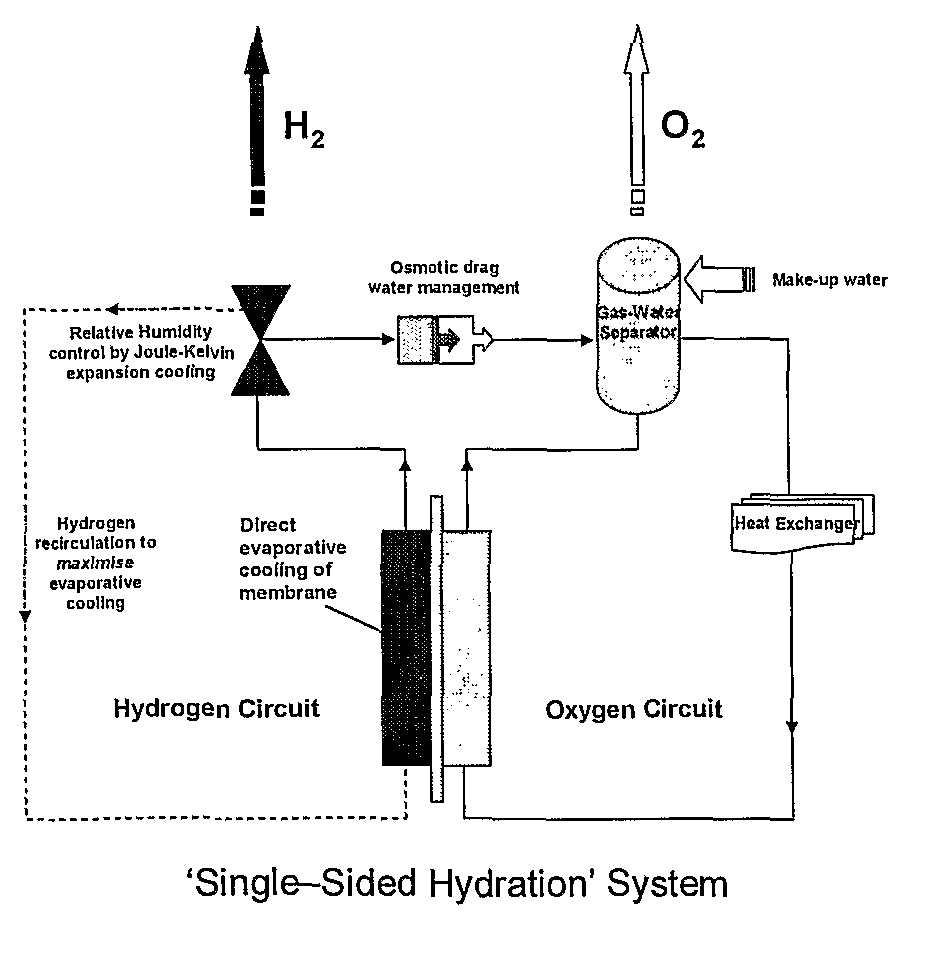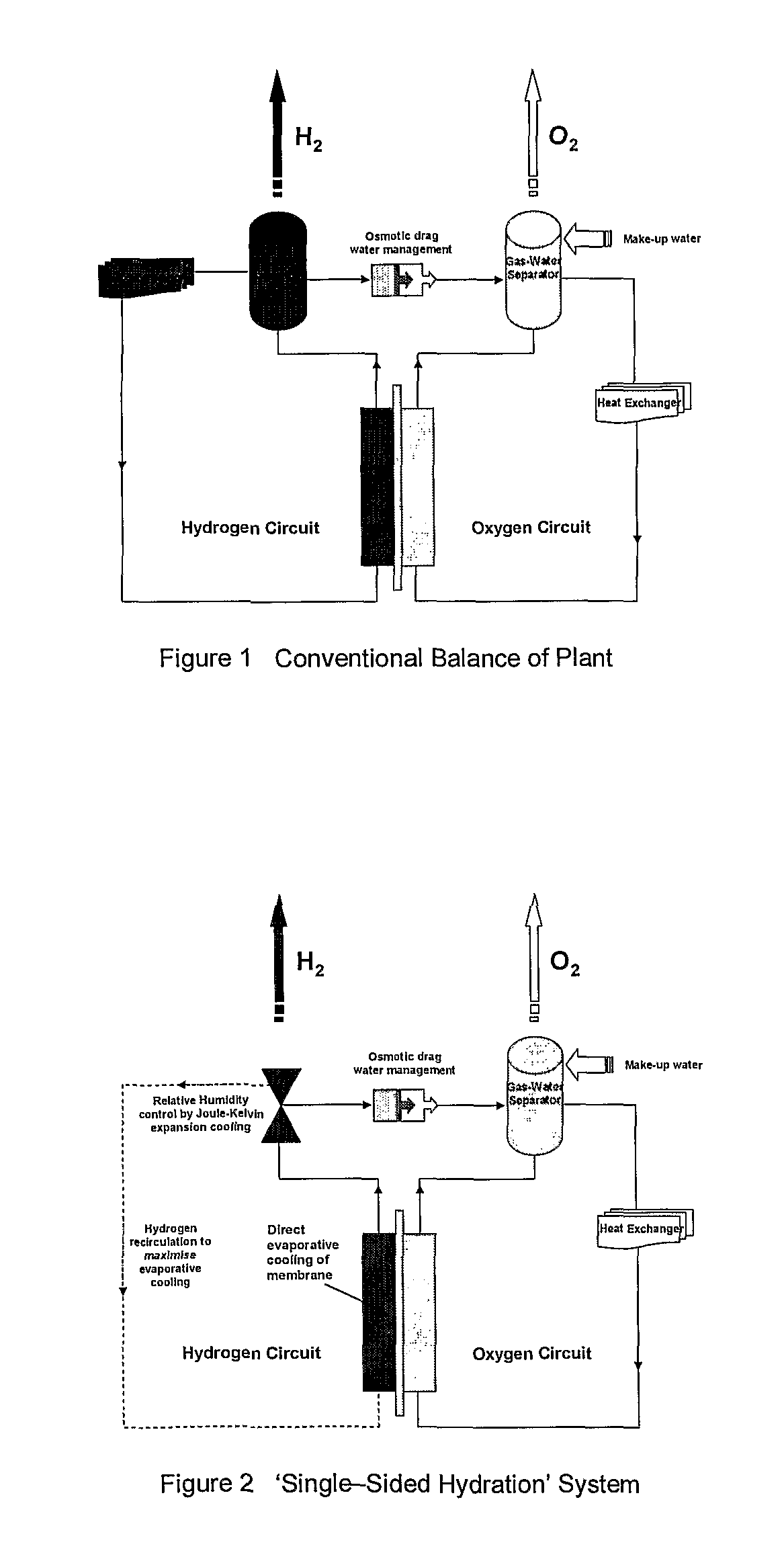Water management and cooling during electrolysis
a technology of electrolysis and water management, applied in the field of water management and cooling during electrolysis, can solve the problems of inefficiency of electrolyser, high parasitic energy demand inherent in pumping and circulation, and a small fraction of the total cost of the electrolyser system, so as to reduce catalyst degradation, reduce the potential for cheaper catalysts, and maintain the effect of hydration
- Summary
- Abstract
- Description
- Claims
- Application Information
AI Technical Summary
Benefits of technology
Problems solved by technology
Method used
Image
Examples
example
[0047]An experiment was conducted to determine the effect of hydrogen re-circulation in a one-sided water electrolyser. Two sets of apparatus were used:
[0048](1) A one-sided electrolyser with water absent on the H2 side of the system (ignoring water present due to osmotic drag). Hydrogen flows at a rate governed by Faraday's first law of electrolysis after being formed at the cathode.
[0049](2) A one-sided electrolyser with water absent on the H2 side. H2 is re-circulated around the H2 side of the cell once it is formed at the cathode. The flow-rate is governed by an external gas pump.
[0050]The equipment used on the H2 side of the system included a peristaltic pump and the electrolyser. In the second apparatus, a drier tower was included to remove water present in the H2 due to osmotic drag. The water on the O2 side of the system was pumped via an electrolyser testing rig. A manual pump (operating at 150 ml / min flow) re-circulated the hydrogen around the H2 side of the system. One-wa...
PUM
| Property | Measurement | Unit |
|---|---|---|
| temperature | aaaaa | aaaaa |
| hydrophilic | aaaaa | aaaaa |
| voltage | aaaaa | aaaaa |
Abstract
Description
Claims
Application Information
 Login to View More
Login to View More - R&D
- Intellectual Property
- Life Sciences
- Materials
- Tech Scout
- Unparalleled Data Quality
- Higher Quality Content
- 60% Fewer Hallucinations
Browse by: Latest US Patents, China's latest patents, Technical Efficacy Thesaurus, Application Domain, Technology Topic, Popular Technical Reports.
© 2025 PatSnap. All rights reserved.Legal|Privacy policy|Modern Slavery Act Transparency Statement|Sitemap|About US| Contact US: help@patsnap.com


